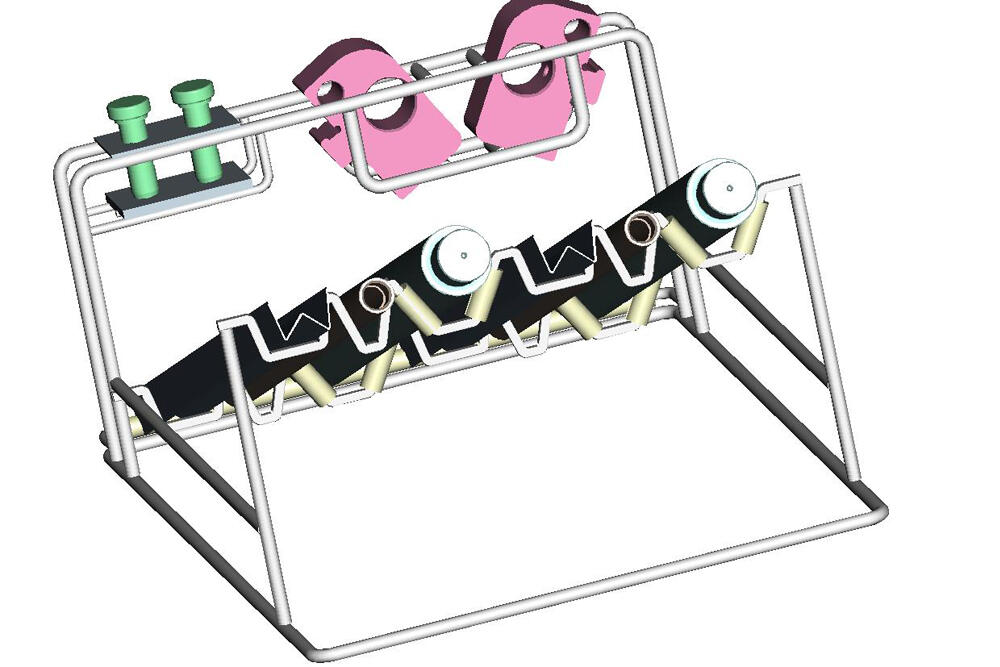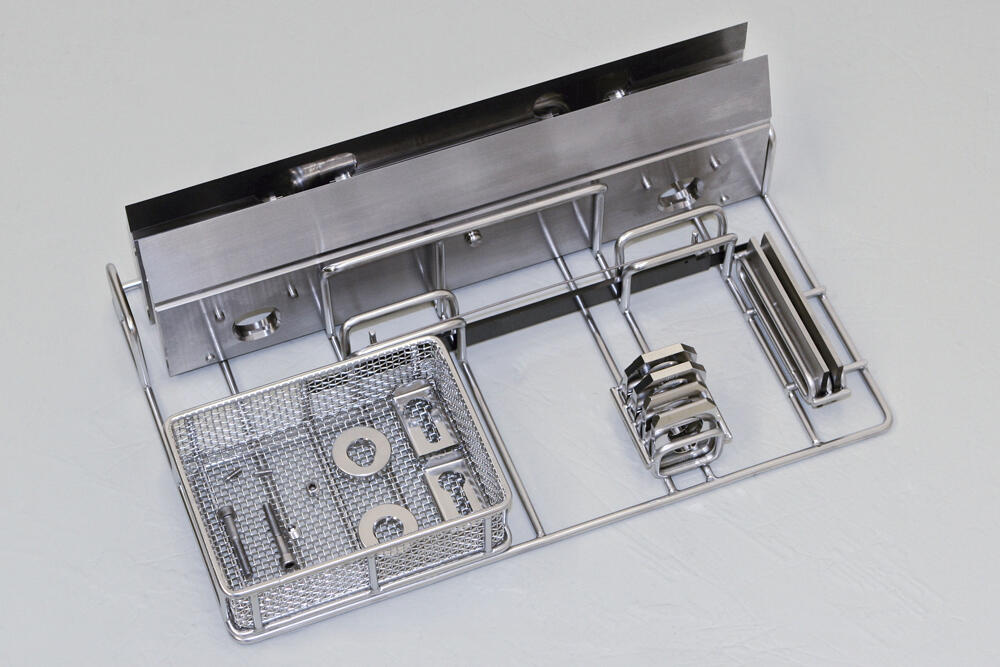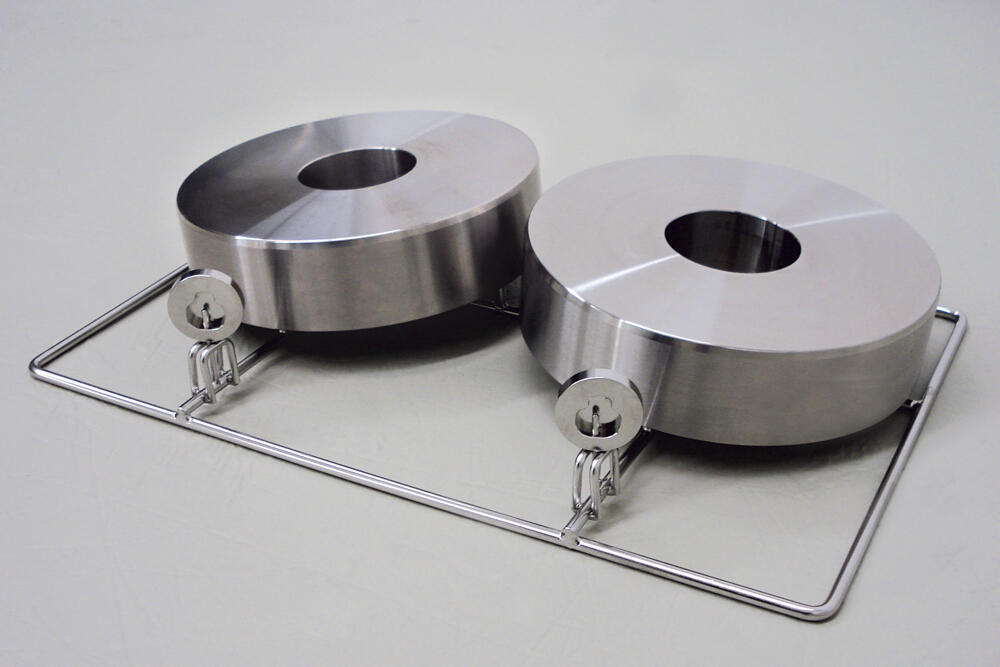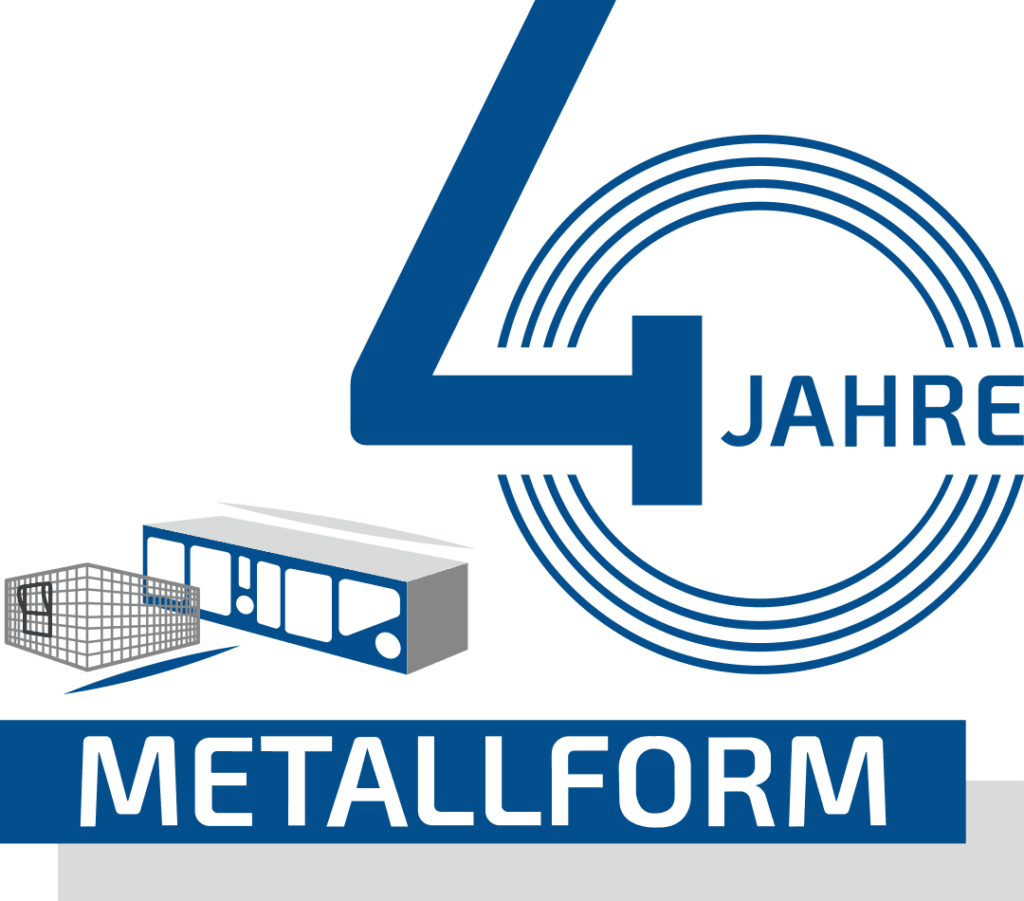When it comes to cleaning tasks in medical technology, safety is the top priority. In order to be able to clean the product-contacting parts of a splitting machine for highly sensitive products in the field of medical operations reliably, quickly and economically, the manufacturer decided to use individually designed baskets. They were designed for maximum product protection and easy handling.
Splitting and sharpening machines have been developed and produced by Fortuna GmbH, based in Weil der Stadt, for around 100 years. They are used worldwide in the industrial processing of leather, plastics, rubber and technical textiles. The company was faced with a new challenge when it developed a splitting machine for highly sensitive medical products that are used in operations. The aim here was to automate a work process that had previously been carried out manually with a scalpel, and thereby achieving better quality. In addition to maximum precision when splitting the product and resharpening the knife, it had to be ensured that there was no contact between product A and product B during processing, reports Hans Laßnig, project designer at Fortuna. To reliably rule out such contamination, all machine components that could come into contact with the product are removed and cleaned after each splitting process. The customer gave Fortuna a time limit of 30 minutes for retooling and cleaning the machine. We therefore had to design these components so that they could be removed and installed quickly while still maintaining extremely tight tolerances. In addition, baskets were required in which the employees can insert the parts quickly and without confusion immediately after removal and clean and sterilize them, says Laßnig.

The basket
a decisive factor
Being able to insert the parts quickly and unmistakably was only one of the requirements placed on the baskets. In addition, they must hold the parts securely, with the contact points being as small as possible and certain surfaces not being touched at all. Contact of the parts with each other during the cleaning process must be ruled out, as well as contact to the metal of the cleaning basket. It is also necessary to position the machine components in such a way that undercuts and blind holes are also reliably cleaned, but that neither cleaning fluid nor condensate from the sterilization process can collect, which could be carried over into the machine. Another requirement was that no basket weighed more than 20 kilograms, as this would have necessitated additional equipment for handling, and that the baskets could be stacked. With these specifications, those responsible for the project at Fortuna turned to two manufacturers of cleaning baskets, including METALLFORM Wächter GmbH in Bretten. “We first spoke with both companies about this task by telephone, and it became apparent that METALLFORM was clearly the more competent partner. They knew what we were talking about,” recalls the design manager. The detailed requirements were defined together with METALLFORM on the basis of 3D data in Bretten. Here, for example, it was a question of how the part must be held so that the liquid drains off well, the parts are optimally dried and no cleaning agent or condensate is carried away. It was a very open and constructive cooperation with METALLFORM. We benefited greatly from the company’s experience in the design of customized cleaning baskets. Even the first proposal was extremely close to the final solution,” continues Hans Laßnig.

The solution: part-specific workpiece
holders in standard baskets
The solution of METALLFORM’s design department consists of three part-specific workpiece holders into which the various parts are inserted. The component holders are designed in such a way that only the intended machine part fits into them. For small parts such as screws and grub screws, one of these holders was equipped with a bulk material basket.
The METALLFORM designers paid particular attention to the contact surfaces. The goal was to have as few and as small contact points as possible between the part and the basket. This is because every contact point carries the risk that contamination or cleaning agent will adhere to the part or that the machine components will not be completely cleaned or dried at the contact points. Direct metal-to-metal contact was prevented by encasing the contact points with Teflon clips. This solution has the advantage over coating as we can replace the clips quickly, explains the design manager.
To realize the required stackability and easy transport, the baskets were integrated into two 480 x 320 x 200 mm (L x W x H) and one 480 x 320 x 108 mm MEFO-BOXes. Thanks to their 16 mm high stacking frames the three baskets can be easily and safely combined into one batch, so that after cleaning and sterilization they are again completely available for installation in the splitting machine.
Both the workpiece holders and the MEFO-BOXes are made of stainless steel round bars with an electrolytic polished surface. The high-quality and durable material prevents return contamination from the basket to the component as well as contamination of the baths by corrosion and zinc deposits. In terms of workmanship, the customized cleaning baskets are also convincing: All rounds are completely welded together. As a result, there are no sharp corners, edges or loose wires anywhere that could cause injuries to employees when inserting the parts. “We are convinced that with these baskets we have received a first-class solution that is optimally matched to the requirements of our customer,” sums up Hans Laßnig.

